Will Taylor from Glastry Farm Ice Cream discusses a no-deal Brexit
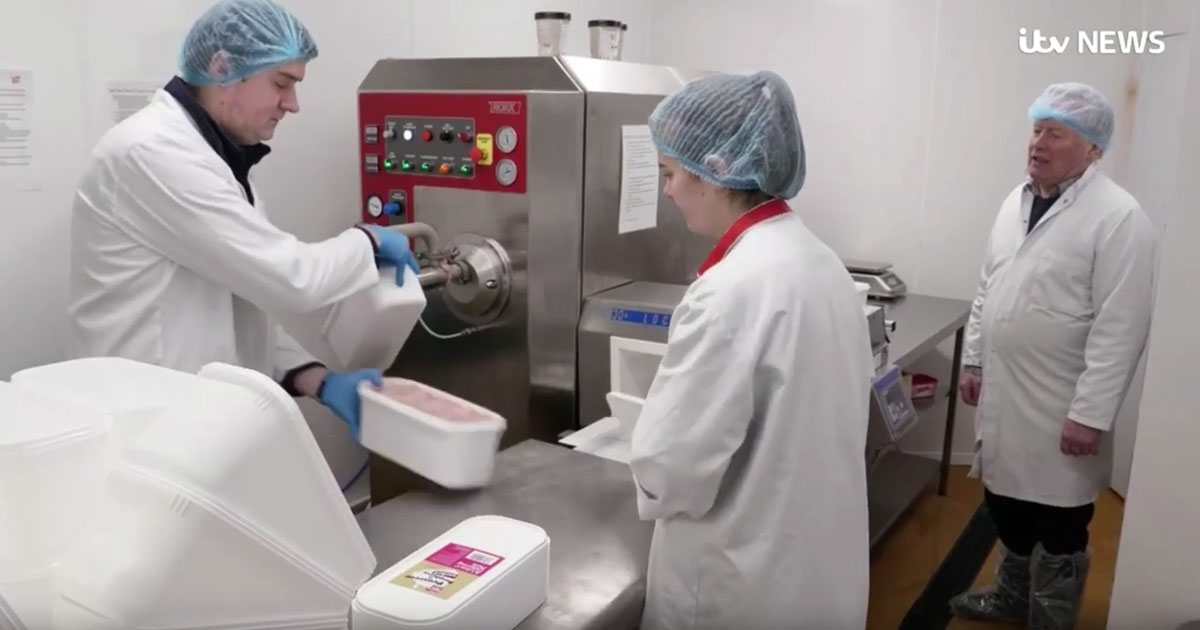
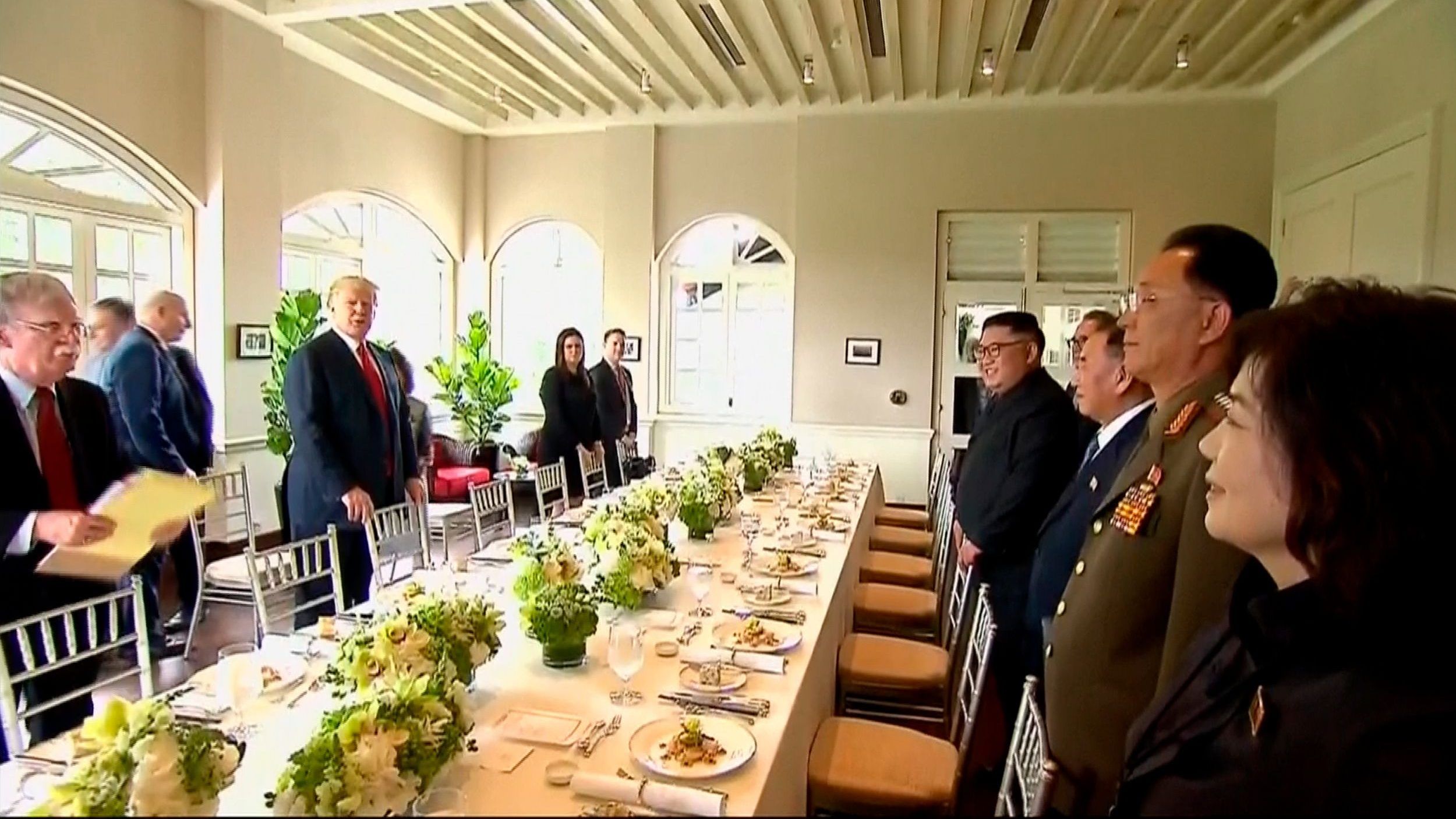
After handshakes, smiles and a thumbs-up, Donald Trump and Kim Jong Un wrapped up their half-day summit in Singapore with a working lunch. Here’s what was on the menu:
Starters
Main course
Desserts
Some highlights of the menu included mango kerabu, a fresh mouth-watering salad dish popular among Malaysians, Yangzhou fried rice, which originates from southern China, and Korean dishes including the“Oiseon” stuffed cucumber and “Daegu Jorim” cod. The menu is kind of out of Trump’s comfort zone till it gets to dessert—he’s known as a huge fan of vanilla ice cream, and eats two scoops of it every day.
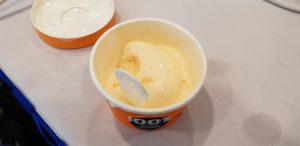 Despite outsiders not knowing a lot about his food habits, Kim Jong Un has been described as a foodie who loves luxury foreign foods—especially cheese, which did not feature on the menu. Today’s working lunch seems lighter on the symbolism than the menu at the inter-Korean summit in April, where South Korea served Kim rösti, a Swiss potato fritter dish he enjoyed in his boarding school days in Switzerland, and a cheery mango mousse cake symbolizing Korean unity that managed to anger Japan.
Despite outsiders not knowing a lot about his food habits, Kim Jong Un has been described as a foodie who loves luxury foreign foods—especially cheese, which did not feature on the menu. Today’s working lunch seems lighter on the symbolism than the menu at the inter-Korean summit in April, where South Korea served Kim rösti, a Swiss potato fritter dish he enjoyed in his boarding school days in Switzerland, and a cheery mango mousse cake symbolizing Korean unity that managed to anger Japan.
One of the most talked about dishes at the Trump-Kim summit, however, was not actually served at the working lunch. The thousands of reporters in Singapore covering the summit have been analysing the kimchi ice cream offered to them at the media center in quite some detail.
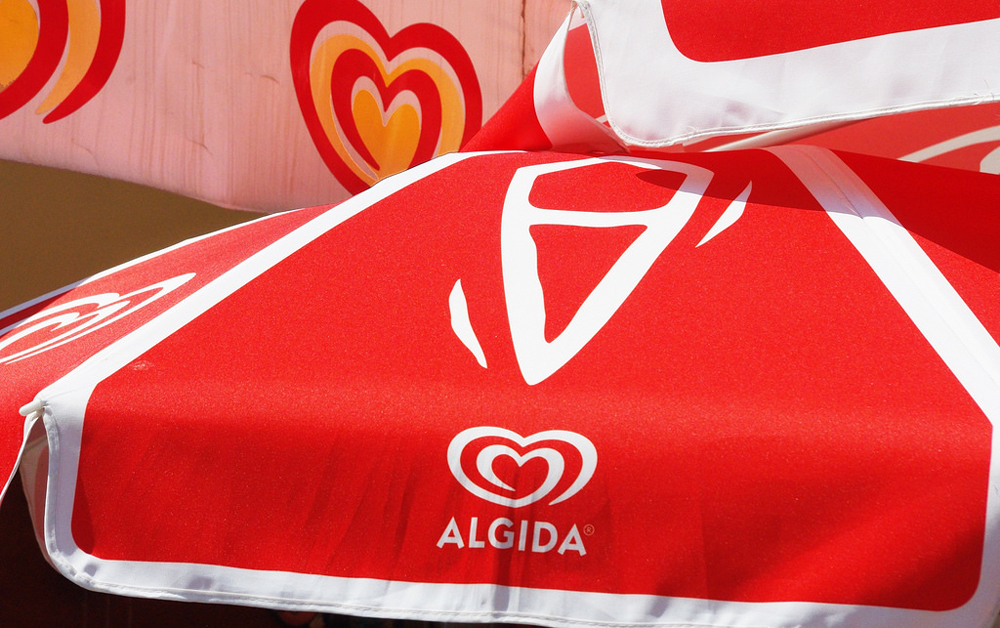
Italy’s antitrust agency said on Wednesday it had fined Unilever’s Italian unit more than €60m (£53m) for abusing its dominant position in the country’s ice cream market.
It said Unilever had abused its position in single-wrapped so-called impulse ice creams, intended for immediate consumption, which it sells through its “Algida” brand.
The local unit of the world’s biggest ice cream maker said in a statement it rejected the agency’s conclusion and would appeal.
Italian authorities started the probe in 2013 when a small producer of organic fruit lollies called La Bomba accused Unilever of forcing local retailers not to sell its popsicles.
La Bomba, based in the seaside town of Rimini, said Unilever had struck deals with operators of beach resort, bars and campsites to exclusively sell the bigger firm’s ice creams.
La Bomba makes less than €1m a year.
Italians ate €5.15bn-worth of ice cream in 2015, according to the antitrust agency, and sales of individually-wrapped treats were worth €780m.
“The market for ice cream (to be consumed) outside the home is a highly competitive one in which artisan and industrial, bulk and packaged products compete for the consumer’s attention in a fragmented landscape that is like no other in Europe,” Unilever said.
Selling the Magnum, Carte d‘Or and Cornetto ice cream brands as well as other food, home and personal care goods, Unilever makes around €1.4bn a year in Italy.
Unilever can appeal the ruling at a regional court.
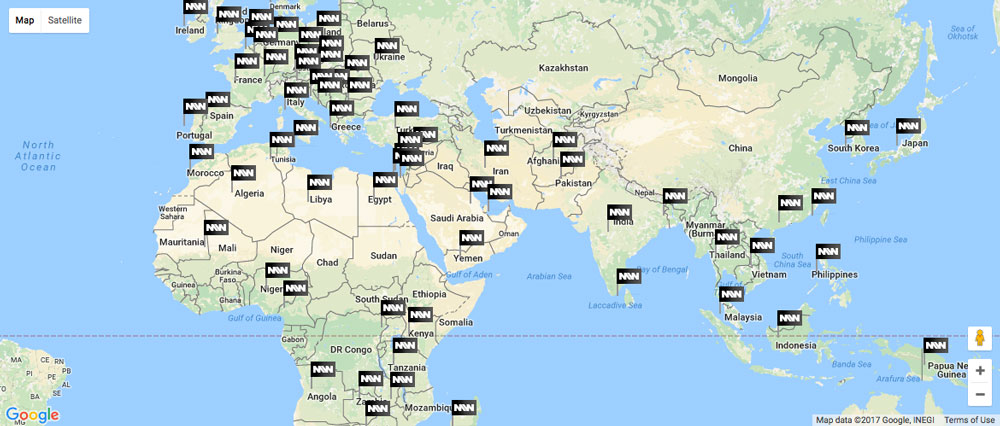
As one of the world’s leading suppliers of new and used dairy machinery, Machinery World buy and sell plant and machinery worldwide to an ever increasing number of countries and continents.
From Iceland to New Zealand and every continent in between, the list of worldwide clients now numbers around 80 buying Filling machines, Packing machinery, Complete Plants, Evaporators & Spray Driers, Used Homogenisers, Ageing Vats, Batch Freezers, Batch Pasteurisers, Continuous Freezers, Fruit Feeders, Separators as well as Wrappers & Shrink Tunnels.
Our recently sold page shows some of the global locations our machinery has been delivered to.and our interactive map shows the spread of worldwide locations
As agents for new machinery from leading manufacturers, we also welcome part exchange, whether you require a single machine or an entire plant. Additionally, we are always interested in purchasing equipment ranging from complete manufacturing plants to individual machines and equipment.
When we buy machinery, we make prompt inspections, firm offers, and prompt payment, with global export facilities and skilled employees to perform removal and transport of machinery worldwide.
Amid the Brexit turmoil since the UK’s unforeseen exit from the European Union on 24th June, small and large business owners have unresolved questions about the impact on their firm’s sustainability, productivity and trade.
An EU exit means restricted access to the Single Market unless the UK, like other countries outside the EU, agrees to accept the free movement of people – an unlikely negotiation since immigration was a core argument of the Leave campaign. That said, certain EU trade regulations seen as burdening British businesses have been lifted, and retained membership of the European Economic Area but not the EU, provides access to the internal market and offers tax reductions of around £150 per person.
The dairy industry is central to the EU debate, with 40% of the EU’s budget spent on agriculture and Europe accounting for 73% of Britain’s agricultural exports. The chief executive of Dairy UK, Dr Judith Bryans, has reaffirmed that the UK’s dairy industry is “adaptable, resilient and determined, with the skills and innovation to rise to the many challenges we encounter”. Dairy UK did not take a side in the EU debate; according to Bryans, this is because trade association and dairy firms will “continue to operate in a global dairy market place and demonstrate [their] unwavering commitment to give the public nothing but the best of UK dairy.”
Arla Foods, a Denmark-based company operating in the UK, has been disappointed by the Brexit outcome, but is focused on minimizing negative impact on business by preserving trade between the UK and Europe.
Meurig Raymond, president of NFU, has stated that Brexit will “inevitably lead to a period of uncertainty in a number of areas that are of vital importance to Britain’s farmers.” According to the NFU, the primary destinations of UK food, beverage and animal feed exports were Ireland (£3.4bn), France (£2.1bn) and the USA (£1.9bn), leaving uncertainty over the post-Brexit influence on dairy exports.
The Leave campaign has been quick to assert, however, that the export market is not going to vanish: the demand for Welsh lamb will still exist in France, and Ireland will continue to sell beef to the UK. Whether it is enough to match the £11bn a year generated through agrifood exports to Europe is still uncertain for farmers and individuals in the dairy industry.